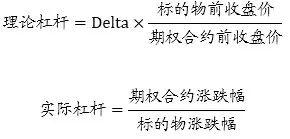|
|
Okay, so I need to understand what a decentralized social media platform is. Let me start by breaking down the terms. Decentralized usually means not relying on a central authority, right? Like how blockchain works with nodes instead of a single server. So a social media platform that's decentralized would not have a central company or server controlling it. But how does that work exactly?
I remember hearing about Bitcoin and Ethereum using blockchain, which is decentralized. Maybe social media could use a similar structure. But how would users interact? On regular social media like Facebook or Twitter, everything is hosted on their servers. If it's decentralized, where is the content stored? Maybe each user has their own server or node?
Wait, there's something called a blockchain-based social media. Maybe platforms like Mastodon or Steemit? Mastodon uses a federated model, right? So instead of one central platform, there are multiple independent servers ( instance ) that can interact with each other. Users choose which server to join, and content is shared across them. That sounds like decentralization because there's no single point of control.
But how does that handle things like user profiles, posts, and comments? Each server would have its own user database, but maybe there's a way to connect them. Maybe through unique handles or something. Also, what about the technical aspects? How do these servers communicate? There must be some protocol or standard they follow to interoperate.
Another thing is governance. In a decentralized system, how are decisions made? On regular social media, the company decides policies, features, etc. In a decentralized platform, maybe each server has its own rules, but there's a consensus mechanism for broader decisions. Or maybe users vote on changes through the blockchain.
Security is another concern. If there's no central authority, how do they prevent abuse, spam, or misinformation? Maybe through reputation systems, community moderation, or smart contracts that automate certain rules. Also, data privacy could be better since data is stored on user-controlled nodes instead of a company's servers.
What about monetization? How do decentralized social media platforms make money? Traditional platforms use ads, subscriptions, or premium features. In a decentralized setup, maybe there's a token economy where users can tip each other with tokens, or there's a mining mechanism for contributing to the network.
I'm also thinking about examples. I know Steemit uses a blockchain where users can upvote content and earn tokens. That's a bit like Reddit but with a native cryptocurrency. Then there's Mastodon, which is federated but not blockchain-based. There's also Bluesky, which uses a decentralized identity system and is more focused on asynchronous communication.
Challenges must include scalability. Blockchain networks can be slow and have high fees. If a social media platform uses blockchain, it might not handle millions of users efficiently. Also, user adoption is a problem. People are used to centralized platforms, so getting them to switch might be tough.
Another challenge is moderation in a decentralized system. Without a central authority, how do you handle harmful content? It might require community-driven moderation, which can be inconsistent or fragmented. There's also the issue of legal compliance. Different countries have different regulations, and a decentralized platform might struggle to adhere to all of them.
Interoperability between different platforms is another thing. If there are multiple decentralized social media networks, how do they work together? Maybe through standard protocols or cross-platform accounts.
So, in summary, a decentralized social media platform distributes control and data storage across multiple nodes or servers, uses blockchain or federated systems, allows users more control over their data and identity, and faces challenges in scalability, moderation, and legal compliance. Examples include Mastodon, Steemit, and Bluesky. Monetization could be through tokens, tips, or decentralized advertising.

A decentralized social media platform redistributes control and data management away from a central authority, emphasizing user autonomy, privacy, and resilience. Here's a structured overview:
Key Features:
Decentralized Architecture:
Federated Model: Platforms like Mastodon allow users to join independent servers ("instances") that interoperate via common protocols, enabling cross-server content sharing without central oversight.
Blockchain Integration: Some platforms (e.g., Steemit) use blockchain to enable content monetization via tokens, where users earn rewards for contributions.
User Control:
Data Ownership: Users store data on personal devices or chosen nodes, avoiding reliance on third-party servers.
Reputation & Identity: Decentralized identifiers (DIDs) and verifiable credentials (e.g., Bluesky) let users manage their digital identities across platforms.
Governance & Moderation:
Community-Driven Decisions: Governance is often handled via voting or decentralized autonomous organizations (DAOs) for platform-level changes.
Fragmented Moderation: Relies on community rules, automated filters, or smart contracts to address harmful content, though consistency varies.
Monetization:
Token Economies: Platforms like Steemit reward content creators with native tokens, enabling tipping and ad-free interactions.
Decentralized Advertising: Blockchain-based ad networks (e.g., AdChain) ensure transparency and user control over ad revenue.
Challenges:
Scalability: Blockchain networks face slow transaction times and high costs, complicating mass adoption.
Legal Compliance: Navigating diverse regulations (e.g., GDPR, CFAA) without centralized coordination is challenging.
User Adoption: привычка centralized platforms hinders transition; education and usability are critical.
Interoperability: Ensuring cross-platform compatibility requires standardization (e.g., W3C DIDs).
Notable Examples:
Mastodon: Federated, open-source, and ad-free, prioritizing user autonomy.
Steemit: Blockchain-based platform with a native token (Steem) for content rewards.
Bluesky: Focuses on asynchronous communication and decentralized identity via the "Bluesky Network."
Future Outlook:
Decentralized social media aims to enhance privacy, resilience, and inclusivity. Innovations in layer-2 blockchain solutions, interoperability standards, and community governance models may address current limitations, fostering broader adoption while balancing decentralization with functionality.
|
|